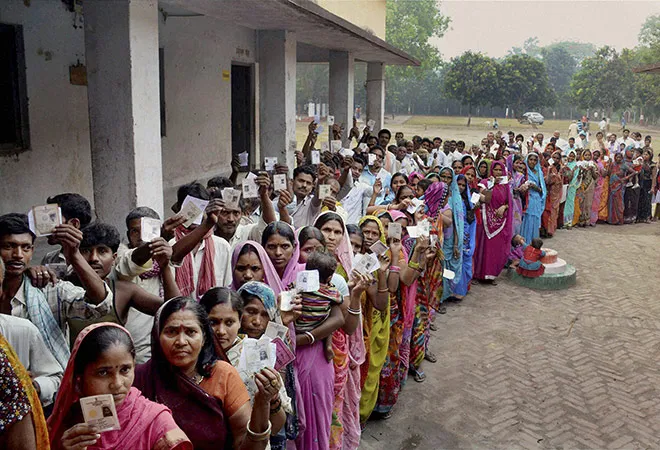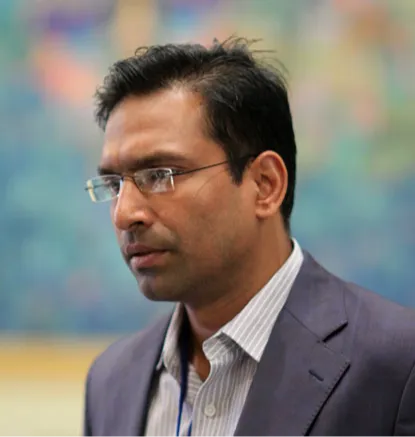In their influential column in reputed foreign publication in 2015, political scientists Roberto Foa and Yascha Mounk sought to focus the attention of the world on the growing disillusionment with liberal democracies.
According to them, “signs of democratic dysfunction” were everywhere from “Athens to Ankara, Brussels to Brasilia.” Ever since Foa-Mounk’s projection of state of liberal democracies, there has been a gush of articles, opinion pieces and influential reports painting a bleak future for the global democratic order. Of course, many of the analyses and opinion pieces are influenced by the unpleasant events in Britain and the United States, as much as the rising tides of right-wing populism in Europe and authoritarian turns in Turkey, Poland, Hungary and Philippines, in the recent times. For many analysts, the biggest disappointment is Russia. The country with over 140 million population had shown early signs of liberalism, but by the end of 2000, all euphoria had disappeared.
Of course, much of these writings have their source and inspiration from reports and projections of known democracy watchdogs and their surveys. For instance, according to the 2017 Freedom House Report, the year 2016 marked the 11th consecutive year of decline in global freedom while populist and nationalist forces made significant gains in democratic states. Of the 195 countries assessed, 87 (45 per cent) were rated “free”, 59 (30 per cent) “partially free” whereas as many as 49 states (25 per cent) were deemed to be “not free”.
Similarly, The Economist Intelligence Unit’s (EIU) Democracy Index that measures global democracy on five categories viz electoral process and pluralism; civil liberties; the functioning of government; political participation; and political culture found nearly half of the 167 countries covered by its index see a decline in overall scores between 2006 and 2016. The leader of the pack seems to be the US, which EIU has categorized as “flawed” democracy. Further, EIU Index states that the “The increasing role played by non-elected technocrats, increased voter abstention and curbs on civil liberties are among the main symptoms of this global malaise”. Surveys carried by Pew, Gallup also found an alarming decline in public confidence instilled in the democratic system and its ability to address growth and income distribution issues. In short, there is widespread pessimism over the future of liberal order and democracy.
Yet, there are equally good number of authoritative reports that find holes in the analyses and projections made by Freedom House and EIU Democracy Index. For instance, a well-known democracy data cruncher Lexical Index of Electoral Democracy found that as much as 68 per cent of the governments across the world are chosen by genuinely contested elections. This was 62 per cent in 2006. Further, some 56 per cent of the democracies established after 1975 “have not seen democratic reversals”. Importantly, according to the Lexical Index, democracy remains the most widespread and legitimate form of government.
However, most credible and comprehensive counter-narrative on the state of democracy has emerged from the democracy watchdog International IDEA (Institute of Democracy and Electoral Assistance). Its recently released report The Global State of Democracy: Exploring Democracy’s Resilience found many of the analysis and conclusions on democratic decline flawed and exaggerated. IDEA’s newly developed “Global State of Democracy (GSoD) Indices covering 155 countries over a period of 40 years and using as many as 98 empirical indicators to understand the state of global democracy arrived at significantly different conclusions than what Freedom House and EIU Democracy have been offering. As per the GSoD Indices, “the democracy has made major progress since 1975 and the world continues to see stable levels of democracy”.
Overall, increasing number of elections are being held in a free and fair manner; fundamental rights are being better respected; checks and balances on executive have gone up and participatory engagements with the government has increased over the years. Thus, according to GSoD Indices, while there is a certain degree of variations among democracies, largely, the recent decade has seen not “democratic decline” but “stability” overall. For it, the biggest outlier in democratic revival and consolidation is Asia.
IDEA’s positive painting of democracy has many takers among the democracy community. In an influential column in Foreign Affairs, Carnegie’s Thomas Carothers and Richard Youngs found much of projection on the democratic decline an exaggeration based on a select set of highly visible negative developments such as the Arab Spring, rise of illiberal populism in Europe and the United States. For them, while the overall state of democracy in the world is less healthy than it was during the third wave, yet democracy is holding steady in some regions, populism is not yet a global trend as often portrayed and most citizens are interested in accountability than illiberalism. Larry Diamond, the globally renowned democracy analyst says it even better. He says: “Most striking features of the past two decades has been the lasting diminution of military influence in government and the decline of the military coup”.
This commentary originally appeared in DNA.
The views expressed above belong to the author(s). ORF research and analyses now available on Telegram! Click here to access our curated content — blogs, longforms and interviews.




 PREV
PREV


